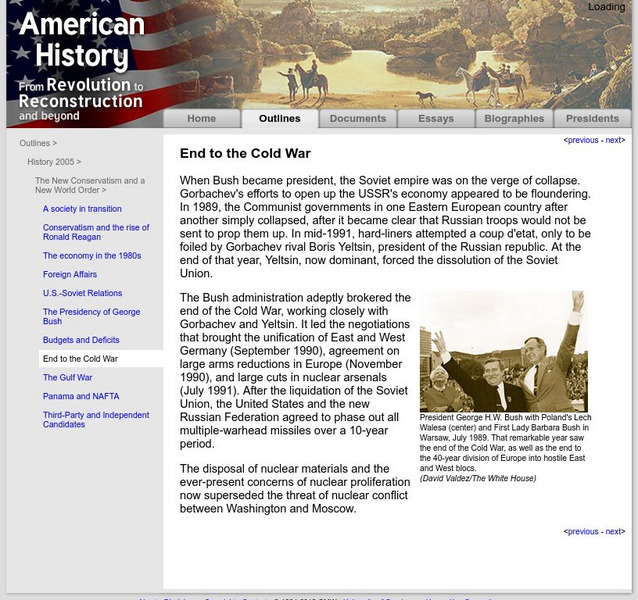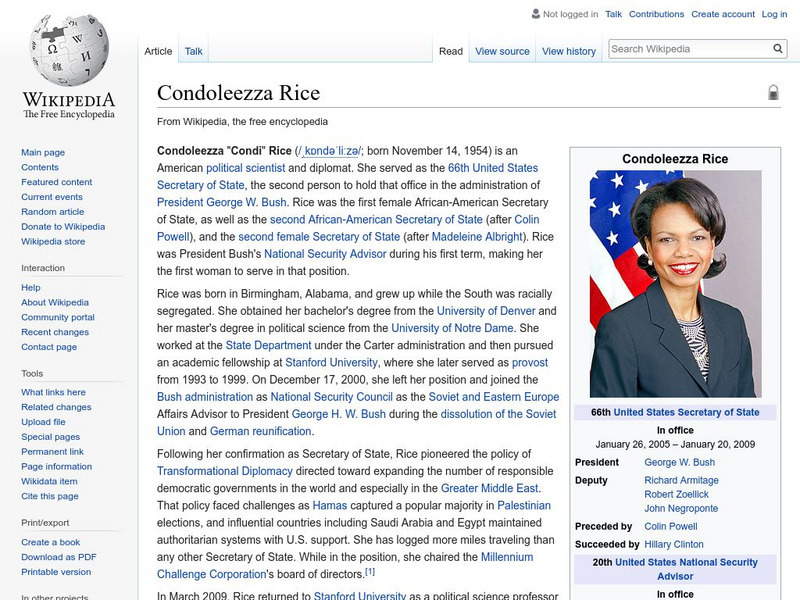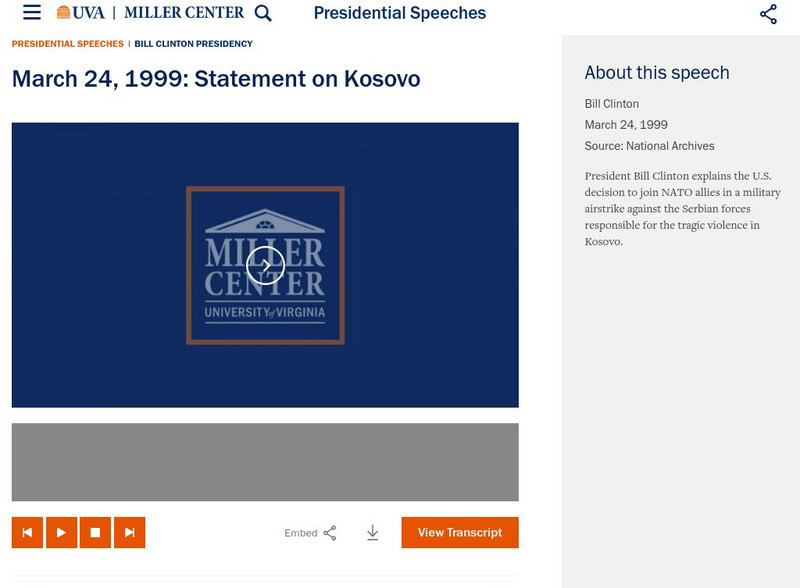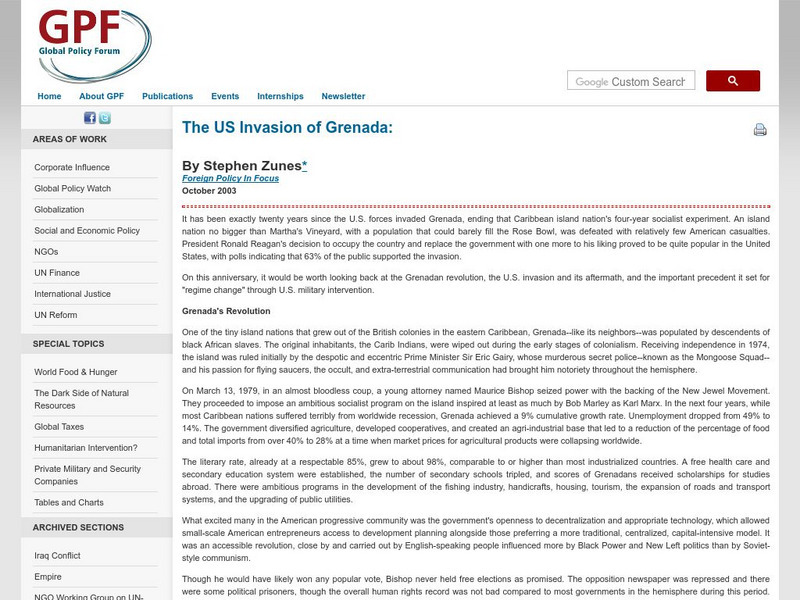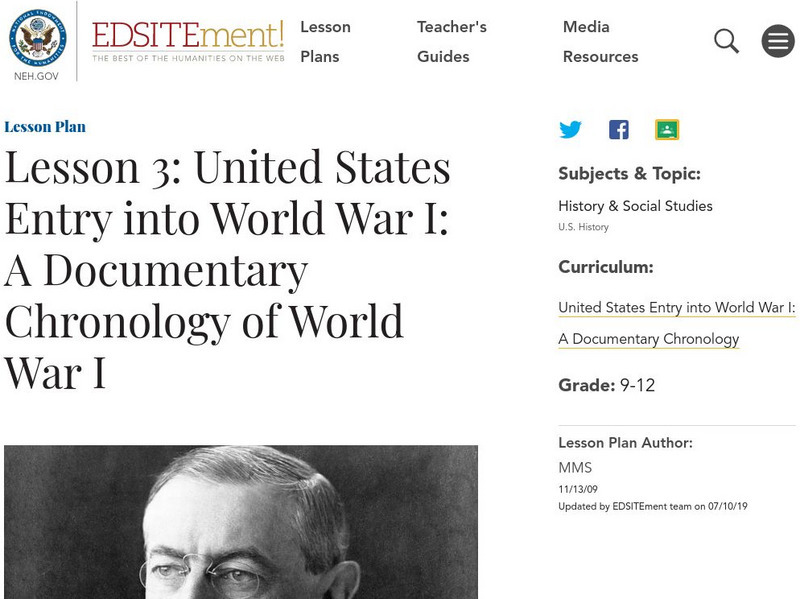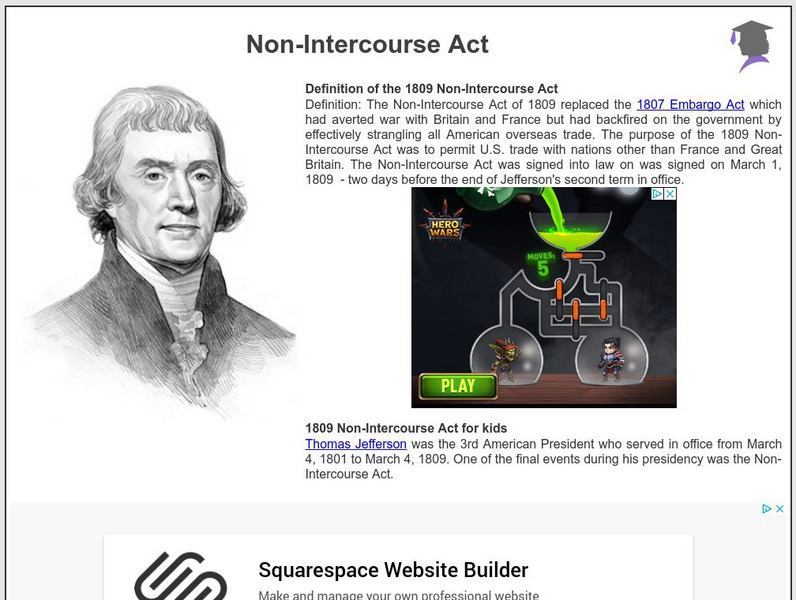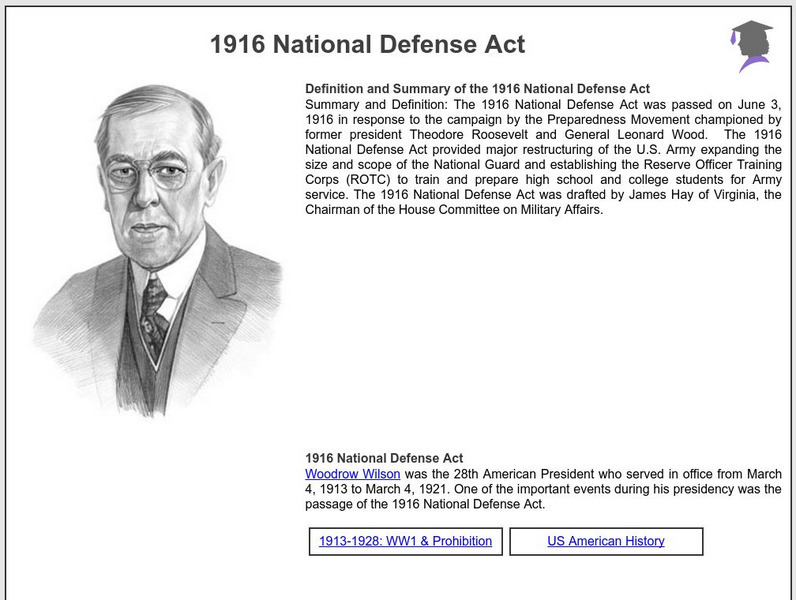Digital History
Digital History: Three Theories Explaining Imperialism [Pdf]
Read about three theories of Imperialism and how actions by the United States in the late 19th and early 20th centuries were driven by one or perhaps all three of the theories.
University of Groningen
American History: Outlines: End to the Cold War
Brief overview of G. W. Bush administration policy and the collapse of the Soviet Union effectively ending the Cold War.
Other
Center for the Study of the Presidency and Congress
The Center for the Study of the Presidency is a non-partisan and non-profit corporation. Inspired by Dwight Eisenhower's 1969 call for programs on the American Presidency for 'students old and young.'
US Department of State
Office of the Historian: The United States and the Haitian Revolution
Study the roots of the Haitian Revolution and the American response. Our policy shifted many times from 1791 until we recognized Haiti's independence in 1862. Read the following synopsis to better understand our ambivalence.
BBC
Bbc: Russia's Missile Fears
From the pages of the BBC an analysis of Russian opposition to the proposed American missile defense system by Fyodor Lukyanov, a journalist who specializes in foreign affairs. Provides interesting reactions to the analysis from around...
Wikimedia
Wikipedia: Condoleezza Rice
A good biography of the first African-American woman to serve as Secretary of State.
Bartleby
Bartleby.com: Theodore Roosevelt: Military Preparedness and Unpreparedness
Read this essay from Roosevelt's, "The Strenuous Life," in which he discusses U.S. military forces, primarily in terms of the Spanish-American War. Excellent primary source!
University of Virginia
Miller Center at Uva: u.s. Presidents: Statement on Kosovo (March 24, 1999)
Read the speech given by President Bill Clinton in which he explains to the American public why he ordered the U.S. Armed Forces to join NATO in protecting Kosovo from the brutality of the Serbian troops. He gives the background behind...
Other
Global Policy Forum: u.s. Invasion of Grenada
Reassessment of the invasion of Grenada by the United States in 1983. Discusses the island nation before, during, and after the invasion. Leans more progressive.
American Rhetoric
American Rhetoric: Ashton Carter: Sasc Statement on Counter Isil Campaign
This is the text, audio, and video [12:35] of Secretary of Defense Ashton Carter's address to Senate Armed Services Committee on the Counter-ISIL Campaign on October 28, 2015.
University of Groningen
American History: Presidents: Barack Hussein Obama
Resource containing links to Barack Obama's Inaugural Address (2009) and two State of the Union speeches (2010, 2011).
National Endowment for the Humanities
Neh: Edsit Ement: u.s. Entry Into World War 1: Curriculum Unit
A teacher-directed curriculum unit that deals with the issue of why the United States entered World war 1. Includes an extensive list of additional resources and activities.
Mount Holyoke College
Mt. Holyoke: American Interests in the Cuban Revolution
Written by Grover Cleveland, this paper presents the U.S. position for involvement in the affairs of Cuba.
Schools of California Online Resources for Education
Score: White Man's Burden
Teachers: Lesson from SCORE that explores the Expansionist/ Anti-Imperialist debate at the turn of the century. Organized as a U.S. history unit, content includes information about the debate, as well as numerous resources, online...
Khan Academy
Khan Academy: Ap Us History: 1890 1945: Introduction to the Age of Empire
Discusses the transition of the United States in the late 19th century from an isolationist country into an imperial power with colonies of its own and the reasons for this abrupt change in foreign policy. Includes questions for students...
Khan Academy
Khan Academy: Us History: 1945 1980: Richard Nixon as President
Learn about Nixon's presidency, including his strategy to get the United States out of the Vietnam War, his foreign policy maneuvers with China and the Soviet Union, and his fall from grace due to the Watergate scandal.
Khan Academy
Khan Academy: Us History: 1945 1980: The Eisenhower Era
Learn about Eisenhower's domestic and foreign policies.
Central Intelligence Agency
Cia: Homepage
Read about America's Central Intelligence Agency and how it works to provide national security intelligence. The resource discusses careers with the CIA, how the organization is run and its history. Also view the "World Factbook"...
Council of Foreign Relations
Council on Foreign Relations: u.s. Cuban Relations
The tense relationship between USA and Cuba is a complicated one. This article addresses ten topics including the current status between the countries, public opinion, main issues in conflict, role of Raul Castro, why Cuba is on world...
University of Virginia
Miller Center at Uva: u.s. Presidents: Lb Johnson Nuclear Nonproliferation Treaty
Video and transcript of the remarks made by President Johnson upon signing the Nuclear Nonproliferation Treaty of July, 1968. [13:14]
Siteseen
Siteseen: American Historama: Non Intercourse Act
The purpose of the 1809 Non-Intercourse Act was to permit U.S. trade with nations other than France and Great Britain and replaced the 1807 Embargo Act.
Siteseen
Siteseen: American Historama: 1916 National Defense Act
Comprehensive overview presents facts and information pertaining to the 1916 National Defense Act that provided a major restructuring of the U.S. Army prior to U.S. entry into WWI.
University of Groningen
American History: Biographies: Gerald R. Ford
A brief, easy-to-understand biography of Gerald Ford which includes an overview of his domestic and foreign policy.
US Navy
Naval Historical Center: Dominican Republic Intervention, 1965
Article describing the U.S. Navy and Marines actions in the Dominican Republic, with an emphasis on the evacuation of American citizens. Also, includes reports on the Dominican intervention from the Secretary of Defense and the Secretary...


![Digital History: Three Theories Explaining Imperialism [Pdf] Website Digital History: Three Theories Explaining Imperialism [Pdf] Website](https://d15y2dacu3jp90.cloudfront.net/images/attachment_defaults/resource/large/FPO-knovation.png)
